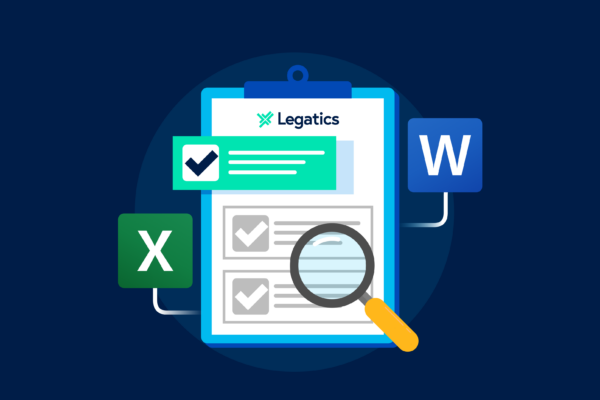In the last year, I’ve moved from legal practice to Legal Tech. It has been a fantastic experience but initially a bit confusing, uncertain, and hard to navigate.
I recently spoke at the Student LawTech Fair hosted by Legal Geek and the University of Law, where I joined a panel of law firms, Legal Tech companies, and alternative legal providers to speak with students and graduates about my career path to date. A number of themes emerged: whether formal legal training is required to move into Legal Tech; the importance of technical literacy; and suggested first steps to move into the industry – and I wanted to share my thoughts to give anyone considering a similar move (or just generally interested in legal technology careers) some guidance.
My journey
I was a banking lawyer for two and a half years. Following my training at a large global firm, I moved to a specialist trade finance practice in London. I first became interested in Legal Tech when I started working on electronic platform documentation – paper agreements that govern transactions made over a computer system. From there, I looked into the burgeoning field of Trade Tech, then on to human-centered design and design thinking.
Fast forward 8 months, and I now work in Legal Tech as an engagement manager in Legatics’ rapidly growing team.
We co-design strategies with our customers to help them roll out our transaction management software, help them identify and overcome barriers to adoption, and support the development of new use cases for our platform. We are also spearheading research into the adoption of technology in the legal sector with support from Innovate UK (which you can read about here).
1. Should I train as a lawyer first?
Does training as a lawyer offer a distinct advantage to get into Legal Tech? Yes and no. From my own experience, being able to empathize with customers and speak their language allows me to pick up nuances in technical legal areas and ask targeted questions. Time spent dealing with lawyers and clients has also helped to hone my networking skills – essential if you’re in account management in this relationship-driven sector. I also have an understanding of firm hierarchy and team structures. But I also acknowledge the possibility that, as a lawyer, I have my own biases, which influence how I see problems and formulate solutions.
A number of Legal Tech founders are qualified lawyers. There are also numerous legal technologists, innovation managers, and legal operations professionals who were once in practice. However, it is becoming more recognized that legal technology isn’t just a way to jump out of lawyering, but rather a viable career trajectory in itself after both law and non-law degrees. Several firms now offer legal technology training contracts, operate consultancy arms, and manage incubators to foster entrepreneurial talent. Universities have also created courses to reflect the advent of technology, recognizing that studies need to reflect broader changes within the industry. Not only that, but there is the inevitable uptick in demand for machine learning engineers, data scientists, and software developers.
As an industry, we do need former lawyers or law graduates who understand legalese and how law firms operate, but we also need diverse (non-lawyer) perspectives and skills to help us build a new-look legal industry that’s agile, cost-effective, and accessible.
2. Do I need to be technically competent?
While I was in practice, I was embarrassingly tech-illiterate and often reverted automatically to the apologetic excuse: “I’m a lawyer.” I just about managed automatic cross-referencing in Word documents, but I was (and remain!) a far cry from being able to program in Python. This highlights two things:
- Lawyers are often victims of implicit bias when it comes to their own use of technology, which is extremely disempowering and especially unhelpful when trying to encourage adoption.
- No, you don’t need to learn how to code to work in Legal Tech – unless, of course, you’re planning on writing the software.
Legal Tech solutions need to be designed, written, marketed, sold, and actually used. This offers so many career options for those with an interest in a less traditional route into the industry. In addition, if you’re worried about training as a lawyer and feel you need to prepare for the “Legal Tech” you might encounter, sit back and relax. You’ll get training and support to use these solutions when they’re relevant to you.
So if you’re considering Legal Tech, it’s very much about deciding on which side of Legal or Tech you fall and maximizing your skills to find a role that suits you.
3. Where do I go from here?
We’re hiring! Apply to us – we are actively seeking a new member of the Engagement Team to help us roll out Legatics to our customers.









